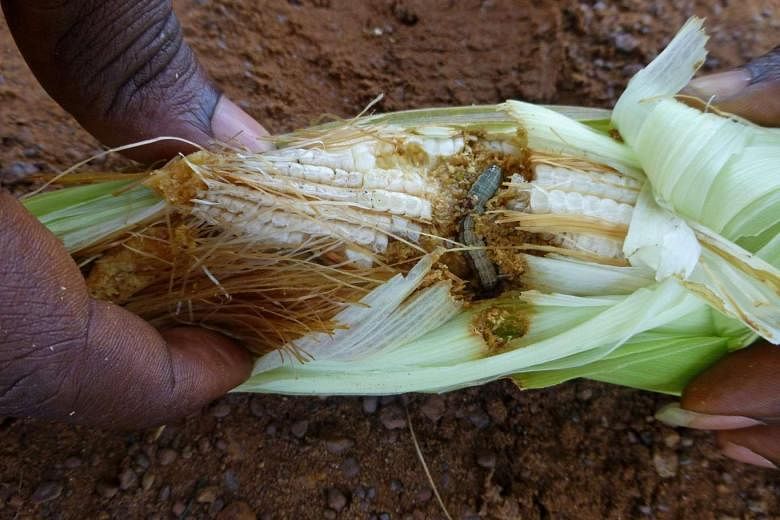KINSHASA (ROUTERS) - Crop-destroying caterpillars known as armyworms now ravaging South Africa and other parts of the continent, have now spread to the Congo, and could reach tropical Asia before long, the United Nations warns.
The armyworms have destroyed 63,000 hectares of maize in southeastern Democratic Republic of Congo since December, causing local maize prices to triple, a United Nations, spokeswoman said.
Suspected outbreaks have already erupted in Zambia, Zimbabwe, Malawi, South Africa, Namibia and Mozambique, and the outbreak in Congo is the first evidence it has spread into central Africa.
Scientists say the armyworm, which is native to North and South America, could reach tropical Asia and the Mediterranean in the next few years.
The armyworms arrived in West Africa from the Americas in January 2016, and have already destroyed crops in Zambia, Zimbabwe and all nine provinces in South Africa, the continent's biggest producer of the grain.
The 63,000 hectares in southeastern Congo represent 80 per cent of maize production in four territories along the Zambian border, UN spokeswoman Florence Maraca told reporters in the Congolese capital of Kinshasa.
The outbreak has caused the price of a 25 kilogramme sack of maize to rise from US$10 to US$30 ($14 to more than $40), she added, and comes as Congo's other main staple crops, bananas and manioc, are ravaged by other maladies.
Armyworm moths lay eggs in maize plants and the caterpillars have also been known to march en masse across the landscape. Countries with confirmed outbreaks can also face import bans on agricultural products.
The armyworm whose botanical name is Spodoptera frugiperda can cause an estimated 73-per cent crop failure and resist pesticides if its larvae develop into advanced stages, according to Xinhua.
Prasanna Boddupalli, director of the International Maize and Wheat Improvement Centre's Global Maize Program, has urged national agricultural research organisations in Africa to develop an integrated pest management system that includes early warning to help farmers combat armyworm invasion effectively to fight the bug.
"We must explore a range of options like use of pesticides and biological pest control methods to limit the damage of army worms on staple crops," Mr Boddupalli told Xinhua in an interview.


